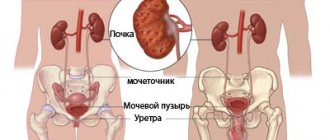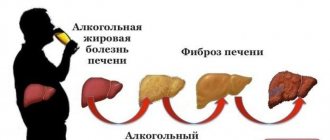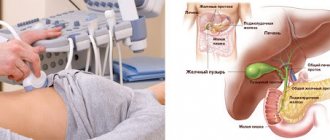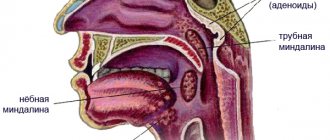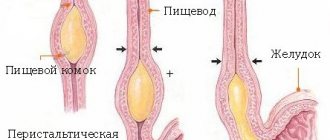The larynx or throat is the part of the respiratory system that connects the pharynx to the trachea. It allows a person to reproduce sounds and is located at the level of the 4th–6th cervical vertebrae. The larynx is a mobile formation connected by ligaments, membranes and joints, and its frame consists of cartilage tissue and is not protected by bone tissue, so it can be easily damaged.
Injury to the larynx can result from both internal and external causes. Any damage to an organ is accompanied by pain, often quite severe. Depending on the type and extent of damage to the larynx, a person may experience breathing problems, dysphagia, dysphonia, internal or external bleeding, coughing, or other problems.
Why is this happening
After vomiting, the throat hurts for various reasons. Before we look at them, it’s worth talking a little about the gag reflex itself. It can be early or late.
- In the first case, this process begins at the time of eating. It cannot be avoided in case of severe damage to the esophagus by a solid product or in the presence of cicatricial deformation, as well as tumors in the organs of the gastrointestinal tract.
- The late gag reflex occurs some time after eating. It causes severe pain in the chest, which intensifies when the body bends forward.
Information about when the unpleasant process began will help you get ahead of the cause that could cause discomfort in the throat after vomiting. As mentioned earlier, vomiting is observed either during meals or after a snack. Additionally, the person will have to analyze the contents of the vomit. You need to examine them especially carefully for the presence of pus and blood impurities.
The gag reflex, as a rule, has unequal intensity. This is usually the cause of painful sensations in the throat.
Doctors identify several main factors that lead to such discomfort. The digestive juice present in a certain concentration in the vomit can easily injure the throat during vomiting. Biological fluid contains the following compounds:
Pepsin
Designed to break down proteins.
Slime
Performs the function of a component that provides optimal protection to the mucous membranes of the digestive organs. Thanks to mucus, they are not exposed to the negative effects of hydrochloric acid.
Bicarbonates
In their functionality, they resemble mucus, since they also protect the mucous membranes from the negative effects of other compounds for breaking down food. Bicarbonates protect the stomach walls from possible damage.
Treatment of laryngeal injuries
First of all, in case of injuries to the larynx, the patient needs to restore respiratory function; in some cases, anti-shock measures or stopping bleeding may be necessary. If the patient’s condition is stable, therapy is carried out, which consists of relieving the inflammatory process, pain, eliminating swelling, conducting antibacterial, detoxification and infusion treatment.
The patient is advised to rest his voice; if the larynx is poorly obstructed, the patient is fed through a tube. For cartilage fractures, ligament ruptures, extensive injuries, bleeding, stenosis or emphysema, surgical treatment is performed. Surgical treatment includes removal of a foreign body, reconstructive surgery to restore the organ, prosthetics and plastic surgery of the organ and nearby tissues, etc.
After eliminating the clinical symptoms of damage to the larynx, the patient is recommended to be treated by a phoniatrist to restore speech function.
If you receive a laryngeal injury, in order to avoid dangerous complications, you must consult a doctor as soon as possible. Paid services of an otolaryngologist in medical institutions are an opportunity to receive qualified and timely assistance from specialists at any convenient time. You can make an appointment by calling: 8 (812) 322-93-07, 8 (812) 611-08-26.
Neutralization of acid
Initially, a person who experiences nausea and vomiting, causing discomfort in the throat, needs to reduce the acidity of the juice. This will prevent corrosion of the unprotected mucous membrane. Foods and drinks containing alkali are ideal for such purposes. Best to use:
- Mineral water without gas.
- Water with a small portion of chalk.
- Regular boiled water.
It is highly undesirable to try to reduce the acidity of gastric juice using tap water. It may contain bacteria that the body in this situation is not able to cope with on its own. Therefore, drinking unpurified water is quite capable of causing stomach and intestinal upset.
Main reasons
A sore throat may be:
- aching, dull;
- pressing or stabbing;
- bilateral or unilateral;
- constant, increasing and decreasing.
Each of these types of pain indicates a possible cause of the disease.
For example, if discomfort is felt constantly, the pain does not intensify during the process of swallowing, this indicates the likelihood of a disease of another nearby organ, for example, the thyroid gland. Such symptoms may indicate an increase in the size of the thyroid gland (with cancer, hyperthyroidism, etc.).
A common cause of discomfort in the throat area is mechanical or chemical damage to tissue. In the first case, the pain is usually one-sided, in the second, it is most often bilateral. Discomfort when swallowing and soreness can also be a consequence of an allergic reaction.
The most common cause of sore throat is the formation of a focus of infection. Most often, such symptoms occur with the following diseases:
- Tonsillitis (or tonsillitis) is infection of the tonsils by viruses, fungal, and bacterial microorganisms. This disease is characterized by increased pain in the throat when swallowing, headache and redness of the tonsils. The pain may be bilateral or felt on one side.
- Laryngitis (inflammation of the mucous membrane of the larynx) is a disease that can be caused by a variety of factors. Typically, laryngitis is a concomitant syndrome with acute respiratory viral infections; sometimes it occurs as a result of infection by bacteria, most often streptococci and staphylococci. It can also be a consequence of chemical (alcohol, tobacco smoke, concentrated solution of acids/alkalies, food spices) and thermal (as a result of ingesting excessively hot food, drinks) effects. Often found in teachers, lecturers, singers and representatives of other professions associated with the need to overstrain the vocal cords for a long time. Characteristic symptoms of laryngitis: dryness in the larynx, soreness, pain when swallowing, dry cough, hoarseness.
- Pharyngitis is an acute or chronic inflammation of the pharyngeal mucosa. Depending on the etiological factor, viral, bacterial, fungal, allergic, traumatic acute pharyngitis, and also caused by exposure to irritating factors are distinguished. With acute pharyngitis, a sore and sore throat, a dry and sometimes painful cough, is a concern. The temperature may rise to subfebrile levels, rarely higher. If acute pharyngitis is detected against the background of another disease (for example, ARVI), manifestations of the underlying disease (measles, scarlet fever, influenza and others) are added to the clinical signs of pharyngitis. Chronic pharyngitis is not characterized by an increase in temperature and a significant deterioration in general condition. Patients are concerned about the sensation of tickling, tickling, rawness, awkwardness in the throat when swallowing, the sensation of a foreign body that does not interfere with food intake, but forces frequent swallowing movements
- Adenoiditis. This disease - inflammation of enlarged nasopharyngeal tonsils - is most often observed in children under ten years of age. Accompanied by the release of purulent mucous secretion, difficulty breathing through the nose, congestion, and pain in the ears.
- Flu. With this disease, symptoms of general intoxication of the body are observed. In addition to painful sensations in the nasopharynx, the flu is accompanied by moderate or severe pain in all parts of the body, high fever (up to 39 degrees and above). Headaches, chills, general weakness, and intense sweating are often observed.
- ARVI. Acute respiratory viral infections are characterized by photophobia, increased lacrimation, runny nose, and cough. Muscle pain is not expressed, as are headaches, the temperature rises to 37.5-38.5 degrees.
It is not recommended to treat all these diseases on your own. If you experience a sore throat, you should definitely consult a doctor. To alleviate your condition before receiving medical advice, you can use the tips below.
Disinfection and elimination of the inflammatory process
If the throat not only burns, but also becomes inflamed, it is necessary to disinfect the affected tissues of the mucous membrane. This is a mandatory measure that helps reduce the number of harmful bacteria in the mouth and throat.
Regular rinsing works well for such purposes. This procedure eliminates not only pathogenic microorganisms, but also the remnants of vomit. The following compositions are suitable for rinsing:
- Miramistin.
- Chlorhexidine.
- Hydrogen peroxide solution.
If there is an inflammatory process, it is worth using antihistamines. For pain caused by vomiting, doctors recommend using Zodak or Loratadine.
If a person often encounters this problem, he should know what to do in such a situation. It wouldn’t hurt for him to stock up on special lozenges, which are usually used for sore throats. Sprays belonging to the group of anesthetics also help alleviate the condition.
If vomiting was not caused by food intoxication, then you can try to get rid of a sore throat with warm milk with a piece of butter.
Types of laryngeal injuries
External damage to the larynx occurs as a result of blunt trauma to the larynx, which occurs after strangulation, blow with a blunt object, fist or piercing object, car accident, etc. Blunt trauma can very often be combined, i.e. complicated by fractures of the cartilages that make up the larynx and ruptures of the vocal cords, tendons, and severe bleeding.
The cause of internal damage can be various medical manipulations on the organ, this is especially often caused by tracheal intubation, endoscopic examination of the bronchi and lungs, connection to a ventilator, etc. The organ can be injured by a foreign body with sharp and cutting edges that enters the larynx. Damage to the inner lining of not only the larynx, but also other parts of the respiratory system, can cause inhalation of toxic gases or too hot air. Severe coughing and screaming can also cause internal damage to the organ. Laryngeal injuries are divided into domestic, industrial and military.
Restoring a damaged shell
If discomfort in the throat persists for a long time, it is necessary to take measures to eliminate it. This will improve the protective properties of the affected area. Rinsing with solutions of medicinal herbs helps restore the regenerative properties of tissues. Chamomile and sage are usually recommended.
A weak solution of potassium permanganate will be a good helper in solving the problem.
There is no need to give up pharmaceutical products. Lizobact tablets help restore damaged throat mucosa. They contain vitamins and plant extracts that speed up recovery.
Additional recommendations
To make treatment for a sore throat as effective as possible, you must follow a number of simple recommendations:
- Until the throat heals, you should avoid eating cold, hot, salty, sour and spicy foods, as they greatly irritate the mucous membrane.
- Talking should be avoided.
- You need to drink plenty of fluids.
- It is best not to drink alcohol or smoke during treatment.
If you don’t want to eat due to discomfort or other reasons, then you shouldn’t force yourself. The lack of usual appetite in this position is quite natural.
During this period, the human body spends almost all its energy on restoring damaged tissues. It is possible that he additionally has to deal with the attack of pathogenic microbes. Therefore, food will only be an extra burden for him, especially if the patient decides to snack on a large portion of his favorite dish.
If your throat is damaged, you should avoid overstraining it. This prevents its tissues from healing normally and restoring their functionality. That is why long conversations for those who are faced with this trouble are undesirable.
Accelerate the healing of the mucous membrane of the throat, as well as restore the body's defenses. Herbal teas that can be taken throughout the day will help.
A sore throat that appears after a vomiting attack should be taken seriously. If you do not immediately begin to relieve the unpleasant symptom, the risk of developing an inflammatory process in the affected tissues increases.
An infection can significantly worsen a person's current situation and lead to more serious problems. An injured throat will be attacked by harmful microbes. If the immune system cannot repel their attack, the person will get sick.
To avoid such a risk, it is necessary to promptly eliminate damage that could lead to such an outcome.
Symptoms of laryngeal damage
Symptoms vary in the degree of damage to the organ structure and how extensive it is. The main and most dangerous sign of organ injury is deterioration or cessation of respiratory function. In this case, breathing disturbance can be immediate, i.e. appear immediately after injury and indirectly, arising as a result of pathological edema, hematoma or organ infiltration.
In addition, trauma to the larynx provokes other disorders:
- Complete or partial loss of voice
- Swallowing disorders
- Pain syndromes of varying severity
- Cough, sore throat
- Internal or external bleeding
- Laryngeal nerve paralysis
- Hematoma formation and laryngeal edema
The danger of laryngeal injuries is fraught with the development of various complications - from post-traumatic shock, laryngeal stenosis, to the development of infectious and inflammatory processes. The most dangerous complication is asphyxia, in which the patient must be immediately connected to a ventilator.

